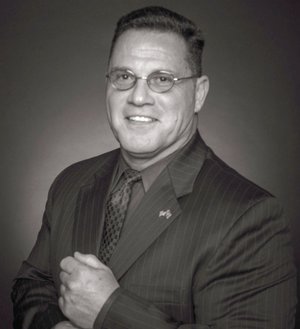As the COVID-19 pandemic continues to dominate headlines, the opioid crisis, another very real public health threat, seems to have become an issue of the past for many. This couldn’t be further from the truth. The reality is that the opioid epidemic is continuing, and in many cases has worsened in communities across the country.
More than 100,000 Americans died of drug overdoses from 2020 to 2021, according to data from the Centers for Disease Control and Prevention — a 28.5 percent increase from the prior 12-month period. Despite the progress made against opioid abuse and addiction in recent years, this hopeful trend has reversed during the COVID-19 pandemic as the latest numbers surpass even the yearly tolls during the height of the opioid epidemic. This surge in overdose deaths represents an increasingly urgent public health crisis that must be addressed.
We shouldn’t have to count overdoses or related deaths to recognize this as a critical issue. We need to get ahead of opioid abuse and addiction by looking to the root of the problem: initial exposure to opioids. More than 50 million Americansundergo inpatient surgery each year. Sixty-seven percent of those patients fill opioid prescriptions for their pain. Unfortunately, 2 million of them will go on to be persistent opioid users. As many as one in four people who receive opioids long-term in a primary-care setting struggle with addiction. In spite of that, U.S. healthcare providers in 2020 still wrote more than 142 million opioid prescriptions.
Last spring, senators Joe Manchin, D-W.Va., and Tim Scott, R-S.C., took an essential step to prevent initial exposure to opioids by introducing the Non-Opioid Directive Act. Representatives David McKinley, R-W.Va., John Curtis, R-Utah, Lisa Blunt Rochester, D-Del., and Tom O’Halleran. D-Ariz., followed soon after with the House companion.
The bill would enable Americans to sign a voluntary non-opioid pain management directive notifying health professionals that they do not want opioids. It would ensure that non-opioid options for pain management are considered in medical treatment, and it also provides a supportive tool for Americans to notify their healthcare providers that they want alternatives for pain treatment. Providers can still administer opioids in emergency situations or hospice care settings without any retribution. This bill is critically important for those who are most at risk of misusing opioids, including those with a history of an opioid disorder.
This common sense practice is gaining traction. To date, eight states have almost unanimously passed legislation establishing a non-opioid directive to allow patients to notify health professionals that they do not want to be treated with opioids. Now, nine more states are considering similar legislation. This is excellent progress, but it’s not enough. Opioid addiction touches every corner of the United States. It’s time to establish a federal directive to give all Americans the option to choose alternative pain treatments that are both safe and effective.
As an organization committed to bringing awareness to the opioid epidemic, Hope United knows how crucial it is to limit initial opioid exposure. Hope United was founded after the devastating death of Tyler Bornstein, who died of a heroin and fentanyl overdose at the age of 23 after several years of addiction stemming from opioids prescribed to him after surgery. Opioid abuse is an issue that cannot be ignored and deserves the attention of our government leaders.
We must advance solutions like the Non-Opioid Directive Act that will tackle the problem by preventing initial exposure to opioids so we can stand for Tyler and the other lives opioid addiction cut too short.


